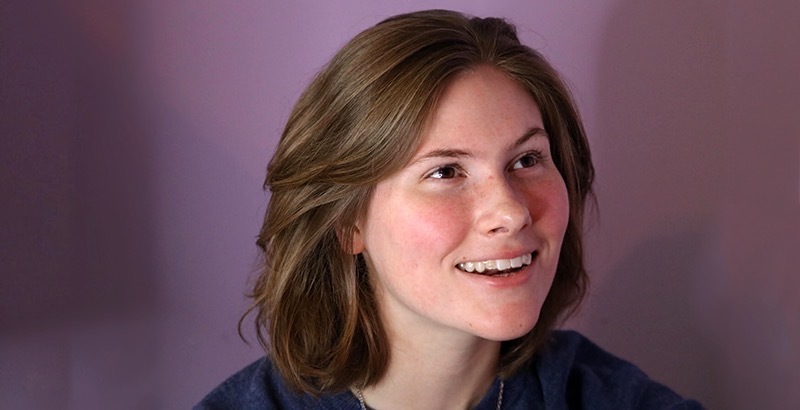Editor’s note: This podcast was originally published on Spotify on April 3, 2024.
Meet Longhorn Essentials, where The Daily Texan will teach you everything you need to know as you take your first steps into adulthood.
In the first episode, Senior Audio Producer Lillian Vest talks budgeting.
Reported and produced by Lillian Vest. Cover art by Ana Campos. Music is Dippler by Blue Dot Sessions.
*music*
Lillian Vest: Welcome to the first episode of The Daily Texan’s new series, Longhorn Essentials: Your guide to all things adulthood. Today’s episode is on budgeting.
Entering adulthood is like entering a new world. You’re on your own and sometimes the only person you can depend on is yourself. Money is a huge part of adulting, and budgeting as a young adult can help you prepare for life after college. But what even is budgeting? Accounting Professor Anindita Roy Bardhan gives a simple answer to this question.
Anindita Roy Bardhan: So budgeting first and foremost, is a planning tool. It helps us. And why do we need to budget? Because we’re budgeting for how much cash we hope to have, by way of a salary or, you know, whatever we are earning. And what are our expenses? Are we going to have enough for our expenses? Or are we going to go over budget? Or will we be able to put aside some money to save? So at the end of the day, a budget is a planning tool.
Lillian: Now that budgeting has been established as a planning tool, what key principles do we have to consider when creating a budget?
Gilbert Rios: Understanding needs versus wants, understanding what those expenses are. Then just being realistic about one’s own income and only expenses to or like, having an idea of that can help a lot with just understanding your budget.
Lillian: That was Gilbert Rios, a Financial Wellness counselor at UT. Let’s hear a little more about what those needs and wants are from Professor Roy Bardhan.
Roy Bardhan: The first thing is, look at, okay, what am I sources of revenue? As in? What is my salary? Okay, and the second thing is the expenses based on the order of priority, like, for example, for a young adult who’s a student at UT, tuition, rent, if they have a car gas, right? And then of course, entertainment, friends, birthday gifts and that kind of stuff, then the more important thing is not just making the budget, but going back to check. What did you actually end up spending? What did you actually end up earning? Were you under budget or within budget for your expenses? Most of the time? I mean, let’s be practical. We go over budget, right? So then, how are we going to deal with it? But I would say a very important part of your budgeting process is going back each month.
Lillian: Some key principles to consider when creating a budget are the categories within income and expenses, and the importance of looking back at your budget to track your progress. If you don’t look back to see if you met your goals, then the budget is not doing its job. Once you have your categories decided, it’s time to set some financial goals.
*music*
Rios: I think goals in general just play an important part in building a budget because at least you have something to work towards. It can be from a short-term, medium-term or long-term goal. Then you can set a SMART goal where it’s specific, measurable, attainable, have a timetable for that goal, and that allows you to okay, I’m gonna budget X amount of dollars per month, and this is a timeframe I need to complete that goal. I’m gonna be more disciplined and stay on top of that.
Lillian: Both Professor Roy Bardhan and Rios emphasized the importance of having a savings account.
Rios: I’ve seen a lot of workshops where I’ve asked teaching students asked students if they have at least something in savings All times are like, No, I have maybe $500 or $200 in savings. I feel like that’s a big component. And if you always try to reiterate to students, like build up your savings, because you never know what’s gonna happen
Roy Bardhan: It’s never too early to start saving, and setting aside money, whether you earning just $10 or $100.
Lillian: So savings accounts are important, but what about credit cards and credit scores?
*music*
Roy Bardhan: So I always think everything comes with the good and bad. It’s a question of how you learn to balance. One thing we really believe in, and we really push that to our children is that make sure you always pay off your credit cards in full. Do not just be about to do that. You know what? I overspend this month, I’ll just make it up next door because that’s going to start affecting your credit history, which becomes very important when you’re going to try and buy a car and buy a home. So making sure you spend within your means is very important.
Lillian: Treat your credit card as if that money is coming directly from your bank account, so you can build that habit and mentality of paying it off every month. Rios recommends that you stay under the 30% threshold of your credit limit.
Rios: So you want to try to keep within 30% or below. As long as you’re still paying it off at the end of the month and not rolling over any balances it can help you. We recommend students to stay within with credit usage. Because that may affect you down the line in terms of like qualifying for a home or apartment, that sort of thing. Just help start off building good credit.
Lillian: You know what to think about when creating a plan. How often should you visit this plan and update it? And what tools work best for this? Professor Roy Bardhan recommended Excel spreadsheets.
Roy Bardhan: The easiest thing to do is just put it in an Excel file. These are my rev you know, my earnings, excuse me, these are my expense categories. And from our credit card statements, it gives it in very beautifully, you can just pull that up on your phone every month, and just put that in. So yeah, so that that’s the easiest, you want to keep it easy and simple. So you’re not going to find an excuse to put off sitting down to compare it. And that’s the reason I say do it just once a month.
Lillian: Rios told me to use what works for you, whether that’s an Excel spreadsheet, an app such as Mint or Rocket Money, envelopes, or even writing it down in a journal. While Professor Roy Bardhan recommended checking once a month, Rios recommended checking and updating the plan every Monday. It all depends on your preference.
Rios: A lot of times, weekly is a good picture of like, okay, how much you spent per week, and of course have a reminder to like, okay, do these expenses match at the end of the month, and average the cost for that, but I think weeklies is a good timeframe to start off with.
Lillian: Now, that we have the groundwork on how to build a budget and use it effectively, let’s hear from Maria Cortes, a fourth-year political communication major at UT who was thrown into adulthood at the age of 19. She is classified as an independent student, meaning she is completely financially independent in the eyes of FAFSA and UT.
Maria Cortes: I think my first big, you know, in an encounter with budgeting was that summer before sophomore year, when, I don’t know what got into me, but it was like this flip of a switch. And at 3 am I put all of my energy into making this long and arduous spreadsheet, detailing every single expense, every single source of income I was expecting and then subtracting those. Finding out how much savings I was gonna have and whether I could afford this or not, and this and that, but it was a lot of testing.
Lillian: Cortes still uses a simplified version of that spreadsheet and describes her process of learning how to budget in a metaphor.
Cortes: It’s kind of like people are throwing pennies at you and you have to catch them and categorize them by good pennies and temporary pennies. Like scholarships being one penny, DoorDash being another penny, babysitting being another penny, internships being another penny and like grants being another penny or just, you know, whatever, right any source of income being a penny, but there being thrown at you. You can’t pay attention to these pennies and where they’re coming from, while also paying attention to every single application that you need to do every single week or every single day, on top of your coursework.
Lillian: Budgeting is hard, and everyone has their own experience with money. It’s important not to compare yourself to others when creating your plan.
Cortes: My biggest advice to give yourself would just be to think of it as like, not a race, not a marathon. Just a walk of really, really long. And sometimes you’ll sprint, sometimes you’ll run, sometimes the money will run out, sometimes it’ll come in waves. Don’t just think about having that money. Think about that money is like an investment in yourself.
Lillian: Sticking to a budget might feel overwhelming, but everyone needs to start somewhere, and college is a great place to begin. Make sure to choose your tool, set those categories and goals, check your progress, start saving and remember to give yourself grace.
*music*
This has been an episode of Longhorn Essentials, a production of the Daily Texan’s audio department. If you liked this episode, don’t forget to subscribe to the Daily Texan on your streaming platform of choice, follow us on Twitter at @texanaudio and check us out at www.thedailytexan.com. This is audio reporter Lillian Vest, thanks for listening.









